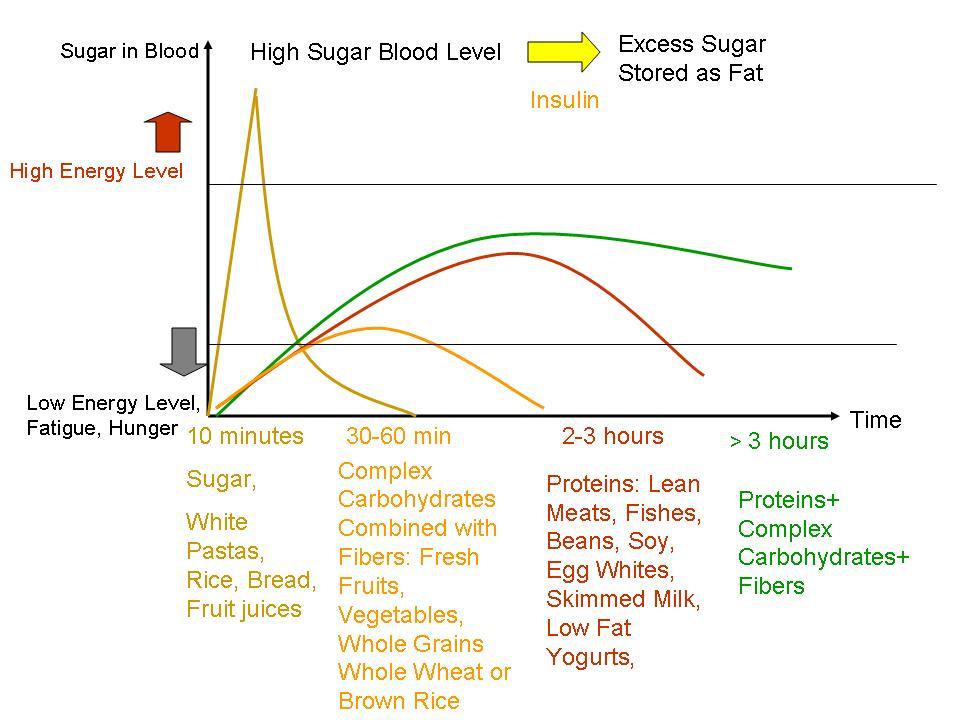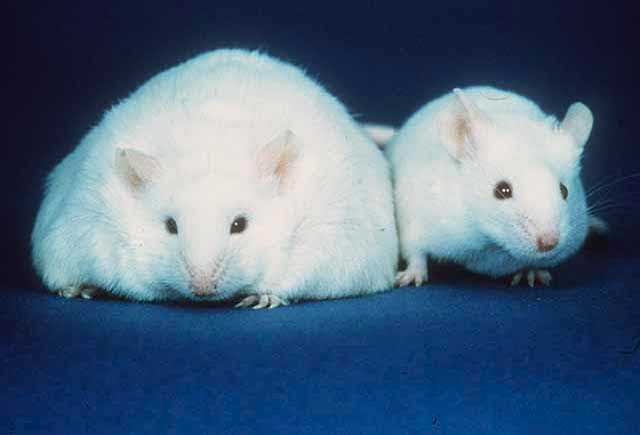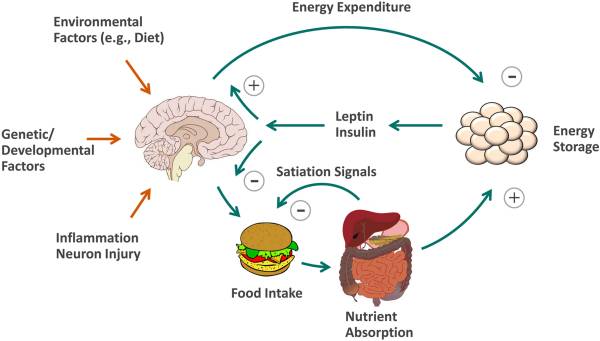Hormone (from Greek ὁρμή, “impetus”) n. a signaling molecule produced by glands and transported by the circulatory system to distant organs where they regulate physiology and behaviour.
Thousands upon thousands of complex processes going on in your body are regulated by many dozens (and counting) of little proteins or modified cholesterol molecules called hormones. Which, ones are made at what time and in what amounts are regulated by what your body perceives it needs.
Hormones influence everything from energy levels, sleep, digestion, fat-burning, fat-storing, sugar handling, hunger… to bone building, inflammation and ability to heal… and more.
Hormones can coordinate their neighboring cells, or they can coordinate all the cells of the body… they can coordinate a change for the next few minutes, or over the course of a year or many years…
Why we should never monkey with our hormones; not even “bioidentical” (which aren’t)
Not lost on advertising is the fact that words like “synthetic” and “drug” are unpopular. In the face of serious side effects, words like “natural” or “bioidentical” have become (been made?) more appealing. But is it true?
Bioidentical hormones—hormones supposedly identical in molecular structure to the hormones we make in our bodies. Whether they are produced by genetically modified cells (confined to a test tube then extracted) or synthesized by chemically changing extracts from plants like yams and soy, while hormones labeled “bioidentical” may be closer to human than hormones extracted from, say, horse urine (Premarin), they are still not identical—and that fact is not lost on your body.
The truly human hormones that only your body can make work in very tiny amounts:
- nanogram (ng) concentrations: a pinch of salt in 10 tons of potato chips;
- picogram (pg) concentrations: a single drop of water in a 6-mile long train of tanker cars
Take a look at the daily dose in that hormone cream or prescription drug—these overwhelm the body. So much so that the rest of the hormone web unravels.
Never has it been more true that “everything is connected to everything” than when it comes to hormones.
Six top hormones for maximal hormone balance
1. Insulin
Top of the list is the hormone insulin, with its partner glucagon, that team to keep your blood sugar between very defined levels, preventing your body from burning fat for fuel when blood sugar rises too high. Too much blood sugar is toxic, too little and your body has no energy (among other problems).
Every meal you eat is comprised of proteins, fats and carbohydrates—sugar is one type of carbohydrate. Fats do not affect blood sugar. Proteins can, but not very much. Carbohydrates, depending on complexity and food processing, create a large spike in blood sugar. (Note to the knowledgeable: yes, this is an overgeneralization where some foods—sweetened foods or even legumes—are more problematic than others—like yams).
Insulin is Important for Good Health
In a healthy person, insulin ensures that blood sugar never reaches dangerous levels even if they do eat that rare desert. But continue to eat blood-sugar elevating foods and…
Elevated blood sugar signals your pancreas to release insulin into your blood. Insulin helps you feel less hungry—can be good thing. The insulin binds to cells, to open a “door” that allows glucose (sugar) to enter the cells and be used for energy. Insulin unlocks these tightly-bolted doors to remove sugar from your blood.
Blood sugar problem #1: weight gain and high cholesterol/triglycerides
In the cells, sugar is either immediately burned as energy or it is converted to fat for storage. Very tiny amounts are made into a special form of sugar called glycogen. Here’s just how little:
The liver can only store about 100 g (a little over 7 tablespoons) of glucose in the form of glycogen. The muscles also store glycogen; total storage space is approximately 500 g of glycogen. Once those “closets” are full, sugar is converted to fat and stored. There is practically no limit on how many calories the body can store as fat.
Most of your cells don’t store this fat. Extra sugar in all the cells of your body is converted to triglycerides and sometimes as part of cholesterol particles for transport through the blood to special fat storage cells, adipose.
Blood sugar problem #2: insulin resistance and diabetes
As your blood sugar crashes from all this cereal and OJ breakfast insulin work, you feel tired, possibly some anxiety and cravings… it is 10AM and you need a snack…
…grab that “health bar” … now the cycle starts again. The 38 grams of sugar spike your blood sugar, the pancreas releases more insulin and…
…because the cells are full with no place to stash the sugar they’re again being asked to accept, they double-bolt their doors and pretend no one is home.
…blood sugar continues to rise—to toxic levels—the beta cells of the pancreas release 2 or 3 more bursts of extra insulin (which is a lot of work). This either opens the doors causing blood sugar to again crash, usually too far, OR the cells remain unresponsive to insulin and blood sugar remains high.
Sound familiar? This is the metabolic complication called diabetes.
So if I can just take insulin, why is diabetes so bad? High blood sugar and insulin resistance can cause:
- High blood pressure
- Atherosclerosis
- Kidney disease or kidney failure
- Strokes
- Heart attacks
- Vision loss or blindness
- Weakened immune system, with a greater risk of infection and more…
Using whole foods to heal insulin resistance, diabetes and other problems of metabolic syndrome.
The most effective way to improve insulin sensitivity is through a low-carbohydrate diet, even if you are obese or insulin resistant or have diabetes.
Please remember this as you buy any of the many Paleo and other “healthy eating” cookbooks out there. Although Paleo diets by definition have far fewer carbohydrates, and are generally anti-inflammatory, even my favorite Paleo cookbooks (and even this website) answer your desires for desert, breads, pizza etc., with “healthier” but not necessarily “ideal” work-arounds. Please include such recipes as “treats” not “staples.” Each time you spike your blood sugar, insulin removes it from your blood stream and sends it into cells—what your cells do not use for immediate energy is converted to fat and stored. Repeated daily, even the so-called “healthy” sugars become unhealthy and create inflammatory imbalances.
Restore balance—consider those carbs a monthly treat not a meal-time staple.
2. Glucagon
On the one side, insulin removes excess blood sugar from the bloodstream; on the other side, glucagon increases blood sugar levels when they drop low. Thus, these two hormones direct an orchestra of changes keeping blood sugar within a proper range.
Insulin is created, stored, and released by beta cells in the pancreas.
Glucagon is created, stored, and released by alpha cells in the pancreas. High blood sugar and high insulin will suppress the ability to make glucagon.
Glucagon’s role in good health and ideal body weight is to help move fat out of adipose cells so that fat can be used for energy. Glucagon can also help the body mobilize and use stored glycogen. Glucose is only burned for energy when it is abundant.
Eat more proteins and fats to partner with glucagon and retrain your body to burn fat.
3. Cortisol
Poor diet and stressful lifestyles lead to weight gain a number of ways; one of those is by creating imbalances in cortisol.
Why you need cortisol: Often called the “stress hormone”, cortisol is a “steroid hormone” (see below) that helps regulate everthing from blood sugar to immune function to heart health to energy level. When you need to respond to stress, you burn blood sugar—levels drop, sometimes dramatically. Your pancreas releases glucagon to fix that and cortisol—released by your adrenal glands—also helps.
Cortisol launches a process called “gluconeogenesis” or the ability to make sugar from non-carbohydrate sources like proteins.
Cortisol also signals fat cells to release stored fat and burn it for energy, conserving blood glucose.
The ability to use other fuels for energy is a great thing. What is not great, is if the perceived stress or need for cortisol remains high. Skipping breakfast can keep cortisol artificially high. Very low calorie diets can keep cortisol levels high. Very stressful lifestyles can keep cortisol levels high.
What happens if cortisol remains high?
- Hinder long term memory: Elevated cortisol makes it more difficult to retrieve long-term stored memories.
- Muscle wasting: Because cortisol tells the body to use proteins as a fuel source, the person who cuts calories to lose weight begins to burn muscle. Chronically elevated cortisol is common when overtraining.
- Poor mental health in our children: Stress and cortisol elevation during pregnancy correlates with greater mental health issues in our children.
- Suppress the immune system: Chronically elevated cortisol slows wound healing.
- Imbalance sex hormones: especially in our low-cholesterol-fad-diet society. Cortisol and your sex hormones like estrogen, progesterone, etc. are all made from cholesterol. Chronically making one of these hormones, cortisol—for example, means there is not anything left with which to make the others. So much for regular periods, testosterone and fertility in men, smooth-sailing menopause and bring on painful irregular menses and hot flashes.
Using whole foods to rebalance cortisol levels
Cortisol levels are mostly affected by lifestyle and not diet. However, certain functional foods can more quickly resore health to your adrenal glands, sea salts, healthy fats, and plenty of green vegetables.
Cortisol resets at night, so be sure to sleep at least seven hours.
4. Leptin
Is there a hormone to tell you when you are full? Yup, meet leptin—also called the “satiety hormone.” “Satiation” refers to the perception of fullness that leads to meal termination; “satiety” describes reduced interest in food after a meal. You may feel full because your stomach is distended (which has lead to the idea of “shrinking your stomach” or “drink water to feel full” or…)
Leptin is the most powerful signal coordinating when you have eaten enough to support the energy needs of your body. And it has to do with how much fat you carry.
As fat cells receive and store triglycerides, fat mass increases. Adipose cells make and release leptin to suppress appetite and increase energy burning until weight loss occurs. When fat mass decreases, leptin levels fall, appetite returns until the fat mass is recovered. There is also a decrease in body temperature and energy expenditure is suppressed In this way, in a healthy person, leptin regulates energy intake and fat stores to maintain weight within a narrow, ideal range.
Leptin levels also affect fertility, immunity, and brain function.
But here’s where it goes south…
Leptin, made by fat cells to control fat storage, is very high in obese people. Makes sense, more fat—more leptin. But wait, shouldn’t that make them want to eat less?
It should, but it doesn’t—obese people become leptin resistant.
The leptin-resistant brain doesn’t interpret high leptin levels correctly, filled up fat cells make so much leptin that the brain begins to ignore the fact of having eaten enough.
The science is still far from complete on how and why we develop leptin resistance. Leptin is just one of many hormones made by adipose cells. Some dozen or more other hormones, many of which are inflammatory, are made and involved in a complex web of hormones and behavioral interpretation. Inflammation disrupts many signals—including harming the sensitive neurons responsive to leptin.
Using whole foods to balance leptin. Reducing all sources of inflammation can help, but in particular, a relatively high-protein diet can improve leptin sensitivity,
Lifestyle: Not only that, but both exercise and proper sleep can help reduce leptin levels in the resistant individual, permitting the possibility of restored balance and proper signaling.
5. Ghrelin
Almost the opposite of leptin, ghrelin is affectionately known as the “hunger hormone.” Ghrelin tells you when you are hungry. And, ghrelin can influence energy use, affecting how energetic you feel.
While leptin remains at certain levels based on how much fat is stored in your adipose cells, ghrelin levels cycle based on eating and your circadian rhythm. Made by certain cells in your stomach, ghrelin blood concentrations rise gradually before a meal and decrease immediately after a meal. Before your meal you are hungry, afterwards you should feel a lack of hunger—a lack of ghrelin.
But in the overweight or obese person, the ghrelin patterns become disrupted. Ghrelin remains abnormally low. While this might seem like a good thing at first (less hungry), ghrelin also helps activate growth hormone production and energy use. A lack of ghrelin, when needed, can leave you lacking in energy, which will contribute to remaining obese.
Another score for sleep…
Another factor behind proper ghrelin regulation is sleep. While sleep’s a complicated subject in itself, people who sleep less have a higher Body Mass Index (BMI). Part of the picture (and see also cortisol) is that lack of sleep decreases leptin (satiety), and increases levels of ghrelin (hunger).
Eight hours of sleep is a good idea for most people.
6. Steroid hormones: Estrogen, Progesterone, and Testosterone
Inaccurately called the “male” or “female” “sex hormones”, estrogen, progesterone, and testosterone are made by both genders and are important to each. Our male/female differences are in how much of each we make—when we make it—and to a certain degree what each is doing in the body.
But all of us, regardless of gender, have all of these steroid hormones and many others.
When it comes to metabolism, each of these do different things:
Testosterone and the other “androgen” family hormones tend to increase fat burning, decrease fat storage, increase sexual drive and also increase masculine tendencies.
Estrogen hormones increase fat storage but also increases burning fuel for energy. These hormones change cholesterol profiles, libido and more—some of which are dependent on having healthy testosterone levels.
Progesterone hormones are the precursors to each of the above and are made from cholesterol.
Progesterone helps regulate blood sugar, influences intelligence, building bones, brain activity and many non-“sex” functions including concerting fat into energy, regulating thyroid hormone production, and helping to reboot libido. It is also a natural antidepressant, aids in normalizing blood clotting, helps to initiate sleep… the list goes on most likely because progesterone in both sexes is remade into many other hormones, including cortisol.
This is a complicated web within itself where health is about maintaining a balance of each of these hormones, at the right time, in the right place, and appropriate for your gender and age. A topic of another article, this delicate balance becomes quickly disrupted with:
| · low fat diets
· low cholesterol diets · high stress · high sugar · inappropriate weight |
· environmental chemicals
· hormone replacement therapy (including so-called “bioidentical” that far exceeds the normal hormone levels in a healthy person) · inappropriate exercise |
The Bottom Line
I hope this mini-snapshot of the more than 50 known hormones made by your body gives you some helpful ideas. Scientists are not only still discovering new hormones, they are also still working out all the complex interactions between them.
Our bodies are set up to survive. But survival is threatened by either too little or too much body fat, too little or too much blood sugar, and too little or too much energy. We appear to have a complex system of hormones (not to mention other signals) that maintain a healthy level of adiposity—whatever is appropriate for the species.
While there is general agreement that this system responds robustly to losing weight (specifically to reduced fat mass) by increasing both hunger and energy efficiency via hormonal mechanisms to help burn fat for fuel (high glucagon, reduced insulin, high cortisol) while creating the emotional drive to get more food (low leptin—satiety—high ghrelin—hunger), we’ve no idea why this becomes disrupted when body fat exceed what is healthy.
It’s still a mystery why these hormones appear to reset after some time at higher body fat.
Not to be defeatist, but the longer a person stays overweight or obese, the harder it is to lose weight and keep it off; the whole obesity hormone system appears to reset to maintain status at a higher weight.
Please set your expectations appropriately.
You will not lose 20 pounds in two weeks and keep it off. Diets promising quick fixes are lies. You will lose money and vital nutrients, and when the weight comes back probably gain a whole bunch of self-defeating wrong reasons why.
Please reset to a routine that supports your balance—and your health.
Diet. n. the routine style of eating; food and drink regularly consumed. b : habitual nourishment.
The mistake you absolute MUST AVOID is obsessing about calories and depriving yourself of delicious REAL foods. Because, if you do, it’s only a matter of time before you rebel and eat everything in sight…causing you to pack on even more fat!
The solution is to focus on eating high-quality foods that are fast and easy to make so that obsessing about calories becomes unnecessary. Remember, low-calorie “diet” foods disrupt hormones in your body and create excess inflammation, which forces you to store fat and eat more. By contrast, eating delicious (even higher calorie) REAL food lowers inflammation and helps your metabolism reset so that it can naturally release unneeded fat. And you get to actually ENJOY your food again!
Perhaps the other articles here will help. And please don’t hesitate to contact me with any questions—use the comments form below.
Like so many of my clients, you can return to your ideal health, weight and hormone balance.
References
Boden G., et al. 2005 Effect of a Low-Carbohydrate Diet on Appetite, Blood Glucose Levels, and Insulin Resistance in Obese Patients with Type 2 Diabetes Annals of Internal Medicine Vol 142, No. 6
Lustig R., 2006 Obesity: Metabolism: Childhood obesity: behavioral aberration or biochemical drive? Reinterpreting the First Law of Thermodynamics Nature Reviews Endocrinology 2, 447-458 (August 2006) | doi:10.1038/ncpendmet0220
Allison MB and Myers MG. 2014 20 Years of Leptin: Connecting leptin signaling to biological function. J Endocrinol October 1, vol 223:T25-T35
Guyenet SJ and Schwartz MW. 2012 Regulation of Food Intake, Energy Balance, and Body Fat Mass: Implications for the Pathogenesis and Treatment of Obesity J Clin Endocrinol Metab. Mar; 97(3): 745–755. Published online 2012 Jan 11.doi: 10.1210/jc.2011-2525
Burger KS and Berner LA. 2014 A functional neuroimaging review of obesity, appetitive hormones and ingestive behavior. Physiol Behav Sep;136:121-7. doi: 10.1016/j.physbeh.2014.04.025. Epub 2014 Apr 21











Great article. Really appreciated.
Thank you Mark! I love sharing evidence-based nutrition.